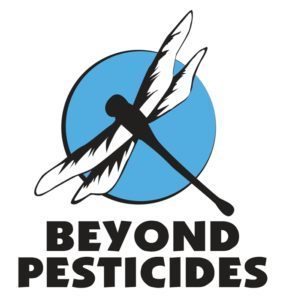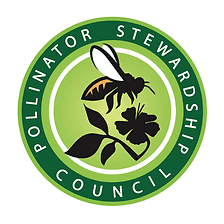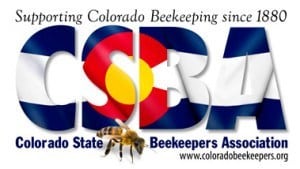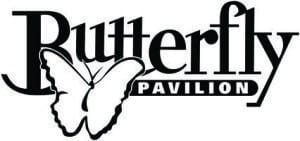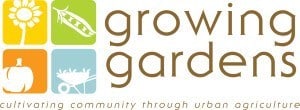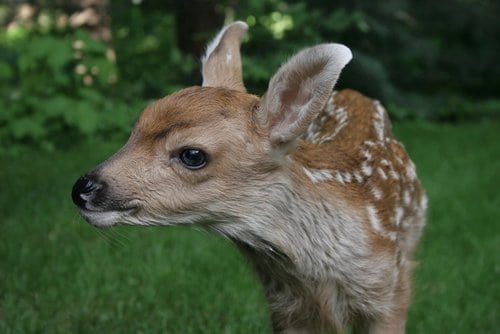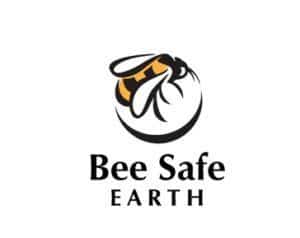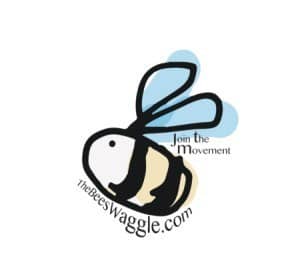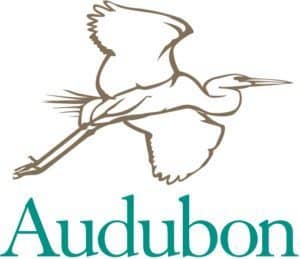Local and National Organizations Working for Pollinators
Sustainable Land Stewardship and Pollinator Support through Education and Legislation
The Xerces Society for Invertebrate Conservation is an international nonprofit organization that protects the natural world through the conservation of invertebrates and their habitats. As a science-based organization, we both conduct our own research and rely upon the most up-to-date information to guide our conservation work. Our key program areas are: pollinator conservation, endangered species conservation, and reducing pesticide use and impacts.
Our scientists seek to minimize the threats pesticides pose to invertebrates by advocating reduced usage, safer products, and more effective evaluation and regulation—including by providing support to communities in the process of adopting pesticide reduction plans. In the realm of pollinator conservation, we work with federal agencies to incorporate the needs of pollinators and other invertebrates into national conservation programs. We engage lawmakers to pass legislation to improve habitat for invertebrates. We also promote invertebrate protection under the Endangered Species Act and other federal and state laws.
People & Pollinators Action Network–
Mission: The People and Pollinators Action Network (PPAN) promotes pollinator-friendly land management and landscaping practices through community education, engagement and advocacy to preserve biodiversity and safeguard public health.
Vision: A world with healthy, sustainable ecosystems where people and
pollinators can thrive now and for generations to come.
The People and Pollinators Action Network’s staff and leaders bring deep knowledge of and experience with pollinator protection, community development, environmental policy, sustainable agriculture, and habitat management. Staff and Board members work closely to forge strategic wins for people, pollinators, and the state of Colorado. They are the only organization working at the grassroots, municipal, and state levels to advocate for policies and practices that reduce and eliminate the use of pesticides and to create and connect swaths of pollinator-safe habitat with the intent of reversing the drastic decline of pollinator populations—upon which our very existence depends.
Beyond Pesticides provides the public with useful information on pesticides and alternatives to their use. With this information, people can and do protect themselves and the environment from the potential adverse public health and environmental effects associated with the use and misuse of pesticides. Click here for solutions to pesticides!
Beyond Pesticides has historically taken a two-pronged approach to the pesticide problem by identifying the risks of chemical-intensive pest management practices and promoting non chemical and least-toxic management alternatives. The organization’s primary goal is to effect change through local action, assisting individuals and community-based organizations to stimulate discussion on the hazards of toxic pesticides, while providing information of safe alternatives.
Beyond Pesticides has sought to bring to a policy forum in Washington, DC and state capitals the pesticide problem and solutions we have become aware of on a day-to-day basis. Beyond Pesticides exists to help make difficult, often daily, decisions about pest management and to make these decisions in a manner that protects human health and the environment.
Pollinator Stewardship Council–
The mission of the Pollinator Stewardship Council, Inc. is to defend managed and native pollinators vital to a sustainable and affordable food supply from the adverse impacts of pesticides.
As pollination is required for one-third of the nation’s food supply, we strive to accomplish our mission through the following activities:
Affect regulatory processes of pesticide risk assessment, label, and enforcement.
Provide advocacy, guidance and tools to document the detrimental effect of pesticides on pollinators.
Raise awareness about the adverse impact of pesticides on pollinators critical to the supply of food and the ecosystem.
Our work is guided by the belief that pesticides should be regulated by the EPA in a way that prevents harm to managed and native pollinators, by ensuring that pesticide labels effectively prevent poisonings, pesticide applicators are well-informed and trained in pest control methods that prevent pollinator poisoning incidents, and State Lead Agencies take full responsibility for their enforcement duties.
Find a few resources to help you learn more about regenerative gardening and how to shift to a “no till” garden.
Colorado State Beekeepers Association–
The Colorado State Beekeepers Association (CSBA) is a non-profit 501 (c) 3 organization. It was incorporated as the Colorado State Beekeepers’ Association in 1888 and is affiliated with the American Beekeeping Federation. The CSBA is the oldest and most widely recognized beekeeping organization in Colorado.
Purpose:
The Colorado Beekeepers Association shall be composed of Beekeepers of the State of Colorado and those interested in allied industries for the purpose of producing better beekeeping methods, better beekeepers, and a more unified system of apicultural work in Colorado.
A unifying organization for affiliated Regional and Local Beekeeping Associations and Clubs in Colorado. It is composed of Beekeepers of the State of Colorado (and other states/areas) and others who are interested in bee related industries for the purpose of producing better beekeeping methods, better beekeepers, and a more unified system of apiculture in Colorado. It represents the concerns and interests of all beekeepers in the State, spanning all levels from Backyard/Urban Hobbyists to Small Scale/Sideliners to Commercial Beekeepers and functions as the main interface between State and Local agencies/organizations and our members. All dues and donations go toward producing better beekeeping methods, better beekeepers, and a better understanding of Colorado apiculture through presentations, educational courses/classes and social activities for both members and the public.
Swarm Calls on a state-wide basis directed to affiliated Regional/Local Associations/Clubs via the CSBA Statewide Swarm Hotline – 844-SPY-BEES (844.779.2337).
At Butterfly Pavilion, we transform the way people think about invertebrates. These small but mighty animals that surround us are so much more than people think. They are everywhere, because everything depends on them. They are the hidden heroes of the animal kingdom, and we–you and us–stand on the backs of these tiny giants.
Butterfly Pavilion is the first stand-alone, Association of Zoos and Aquariums-accredited non-profit invertebrate zoo in the world and a leader in invertebrate knowledge, inspiration and connection. Whether it is providing unique, hands-on learning experiences in our exhibits and educational programs, conducting new research that sets the standard for zoos across the country or building innovative solutions for species and habitat conservation in countries around the world, Butterfly Pavilion is leading the way in ensuring invertebrates are protected for the future.
Butterfly Pavilion exists to foster an appreciation of invertebrates by educating the public about the need to protect and care for threatened habitats globally, while conducting research for solutions in invertebrate conservation.
Butterfly Pavilion was created by the Rocky Mountain Butterfly Consortium, a Colorado nonprofit founded in 1990. As a publicly supported facility, Butterfly Pavilion is primarily supported by admission fees, community support and by the Scientific and Cultural Facilities District (SCFD). The eleven-acre site was provided by the City of Westminster.
Growing Gardens operates 7 community garden spaces across Boulder County. The community gardens provide over 800 people in our community with space to grow their own food. Our generous community gardeners also contribute their extra produce and, on average, donate approximately 1,000 lbs of fresh produce to our Food Project annually.
Over the last 25 years, Growing Gardens has brought regenerative agriculture education and food donations to over 136,000 Boulder County residents. Growing Gardens’ programs empower people of all ages, income levels, and abilities by reconnecting them with their local food systems and teaching gardening, cooking, and nutrition education. Thousands of pounds of produce, as well as plant starts and seeds, are donated to low income community members to impart greater food security and hunger relief in our community.
Our Mission
To enrich the lives of our community through regenerative urban agriculture.
Our Vision
People experiencing a direct and deep connection with food, the land and each other.
Our Practice
We practice regenerative agriculture to ensure the long term viability of our land and water resources to feed future generations.
Dharma’s Gardens – Founded in 2014 as a 501(c)(3) nonprofit educational project, Dharma’s Garden has since grown into a thriving center of connection within the local community. Here, people are connected to each other—through meaningful work, seasonal festivals, and social activities. Just as importantly, people are connected to the natural world—through educational programs, hands-on activities, and immersive experiences.
Through our productive half-acre garden, lively onsite markets, popular seasonal festivals, and diverse educational programs for adults and children of all ages, Dharma’s Garden is a project of the community, by the community, and for the community.
Dharma’s Garden brings a direct connection to sustainable agriculture right into the heart of the city, fully integrated with the community, accessible and inclusive, offering to visitors an immersive experience that is all but lost in the modern world today.
Using organic, biodynamic, and regenerative agricultural practices, this living homestead serves as a model for ethical land stewardship, with wild areas and cultivated areas both integral to the whole.
Bee Safe Earth– Bee Safe Earth is the global effort for Bee Safe Boulder. The mission of Bee Safe Boulder is to create cleaner, healthier, and more biologically diverse environments one neighborhood at a time by educating and empowering local citizens, communities, and organizations to stop using harmful chemicals as a solution to environmental challenges.
The Bees Waggle, LLC
“The purpose of Jessica Goldstrohm and The Bees Waggle, LLC, is to educate children about pollinators. This was inspired by the documentary, The Vanishing of the Bees. It was all about the disappearance of honeybees, and how important they are to our expansive produce choices….Jessica began writing about native bee species, which evolved into setting up community outreach events specifically for families and children to teach about the importance of pollinators. We work with children because they are the future of this movement, and change comes with the turning of a new leaf of leadership, so it’s best we cultivate concern for pollinators in children so it becomes the norm in the future!
Jessica says, “Opportunities have since expanded into both local and national partnerships I am proud to be part of (Fox Creek Elementary, Whole Foods, BBBseeds, Metro Districts of Highlands Ranch, Beyond Pesticides, and the Colorado Pollinator Network). I predict many more partnerships forming as this topic comes to the forefront of popular concern. My hope is to bring many complimentary entities together to bring a complete pollinator educational program to children.”
Audubon Rockies is the regional office of the National Audubon Society for Colorado, Wyoming, and Utah. Using science, outreach, and policy, we holistically address the core threats facing birds in our region. We are an inclusive, nonpartisan bird conservation organization that collaborates with diverse stakeholders in order to find solutions that better birds and communities. We believe that where birds thrive, people prosper.
The National Audubon Society protects birds and the places they need, today and tomorrow.
Audubon works throughout the Americas using science, advocacy, education, and on-the-ground conservation. State programs, nature centers, chapters, and partners give Audubon an unparalleled wingspan that reaches millions of people each year to inform, inspire, and unite diverse communities in conservation action. A nonprofit conservation organization since 1905, Audubon believes in a world in which people and wildlife thrive.
MISSION
For more than ten years, we have partnered with community groups, schools, foundations, and corporate teams to inspire environmental stewardship, build and distribute bee habitats, and improve access to conservation strategies and education. We empower people from all walks of life to advance pollinator and ecological security through our core program pillars — Bee Sanctuaries, Education, Habitat Development, and Community Science. The environmental inequities that affect underserved urban communities mean access to top-tier environmental training, education, and ecological remediation is exponentially vital —– yet disproportionately out of reach — in these areas. For this reason, The Bee Conservancy emphasizes increasing access to learning and training opportunities to drive change and cultivate stewardship and resilience in vulnerable neighborhoods.



